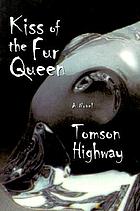Canada’s Residential Schools: Reconciliation
Quotes from The Final Report of the Truth and Reconciliation Commission of Canada: Volume 6
Reconciliation must inspire Aboriginal and non-Aboriginal peoples to transform Canadian society so that our children and grandchildren can live together in dignity, peace, and prosperity on these lands we now share (p. 4).
Mi’kmaq and other Indigenous laws stress that humans must journey through life in conversation and negotiation with all creation. Reciprocity and mutual respect help sustain our survival. It is this kind of healing and survival that is needed in moving forward from the residential school experience (p. 13).
We Were Children (2012) NFB
If you are off-campus, please create your NFB account (free).
We Were Children Tim Wolochatiuk , National Film Board of Canada
Canada’s Residential Schools
-
 Canada’s Residential Schools: The History, Part 1, Origins to 1939
by
The Final Report of the Truth and Reconciliation Commission of Canada, Volume 1, Part 1
Call Number: E 96.5 T78 2015Publication Date: 2015
Canada’s Residential Schools: The History, Part 1, Origins to 1939
by
The Final Report of the Truth and Reconciliation Commission of Canada, Volume 1, Part 1
Call Number: E 96.5 T78 2015Publication Date: 2015
Each volume includes an extensive bibliography of Primary Sources, Legal Sources (e.g., case laws) and Secondary Sources (books, book chapters, journal articles, reports, websites, newspapers and broadcast media, theses and dissertations)
The volumes are downloadable.
-
 Canada’s Residential Schools: The History, Part 2, 1939 to 2000
by
The Final Report of the Truth and Reconciliation Commission of Canada, Volume 1
Isabelle Knockwood (pp. 193-195)
Isabelle Knockwood first entered residential school at Shubenacadie, Nova Scotia, on September 1, 1936. Her whole family accompanied her on the walk to school that day. One brother, Henry, had already been attending for four years. But for Isabelle and siblings Joe and Rose Anne, this was the beginning of their residential school lives [...]
Call Number: E 96.5 T78 2015Publication Date: 2015
Canada’s Residential Schools: The History, Part 2, 1939 to 2000
by
The Final Report of the Truth and Reconciliation Commission of Canada, Volume 1
Isabelle Knockwood (pp. 193-195)
Isabelle Knockwood first entered residential school at Shubenacadie, Nova Scotia, on September 1, 1936. Her whole family accompanied her on the walk to school that day. One brother, Henry, had already been attending for four years. But for Isabelle and siblings Joe and Rose Anne, this was the beginning of their residential school lives [...]
Call Number: E 96.5 T78 2015Publication Date: 2015 -
 Canada’s Residential Schools: The Inuit and Northern Experience
by
The Final Report of the Truth and Reconciliation Commission of Canada, Volume 2
Call Number: E 96.5 T78 2015Publication Date: 2015
Canada’s Residential Schools: The Inuit and Northern Experience
by
The Final Report of the Truth and Reconciliation Commission of Canada, Volume 2
Call Number: E 96.5 T78 2015Publication Date: 2015 -
 Canada’s Residential Schools: The Métis Experience
by
The Final Report of the Truth and Reconciliation Commission of Canada, Volume 3
Call Number: E 96.5 T78 2015Publication Date: 2015
Canada’s Residential Schools: The Métis Experience
by
The Final Report of the Truth and Reconciliation Commission of Canada, Volume 3
Call Number: E 96.5 T78 2015Publication Date: 2015 -
 Canada’s Residential Schools: Missing Children and Unmarked Burials
by
The Final Report of the Truth and Reconciliation Commission of Canada, Volume 4
Call Number: E 96.5 T78 2015Publication Date: 2015
Canada’s Residential Schools: Missing Children and Unmarked Burials
by
The Final Report of the Truth and Reconciliation Commission of Canada, Volume 4
Call Number: E 96.5 T78 2015Publication Date: 2015 -
 Canada’s Residential Schools: The Legacy
by
The Final Report of the Truth and Reconciliation Commission of Canada, Volume 5
Call Number: E 96.5 T78 2015Publication Date: 2015
Canada’s Residential Schools: The Legacy
by
The Final Report of the Truth and Reconciliation Commission of Canada, Volume 5
Call Number: E 96.5 T78 2015Publication Date: 2015 -
 Canada’s Residential Schools: Reconciliation
by
The Final Report of the Truth and Reconciliation Commission of Canada, Volume 6
Call Number: E 96.5 T78 2015Publication Date: 2015
Canada’s Residential Schools: Reconciliation
by
The Final Report of the Truth and Reconciliation Commission of Canada, Volume 6
Call Number: E 96.5 T78 2015Publication Date: 2015 -
Library and Archives Canada
-
Library and Archives Canada. "Conducting Research on Residential Schools: A Guide to the Records of the Indian " (2012) The guide explains how to find and consult the records that are available in LAC’s collections about Indian residential schools, with a focus on records created by the Department of Indian Affairs (RG 10 / R216).
-
Library and Archives Canada. "Native Residential Schools in Canada: A Selective Bibliography" (2002). Introduction General Works School Histories / Personal Accounts Theses Films at the National Film Board Further Research First Nations Periodicals
Statement of apology to former students of Indian Residential Schools
-
June 11, 2008Prime Minister Harper offers full apology on behalf of Canadians for the Indian Residential Schools system
The video recording & transcript: Indian Residential Schools Statement of Apology - Prime Minister Stephen Harper



Facebook Twitter Instagram